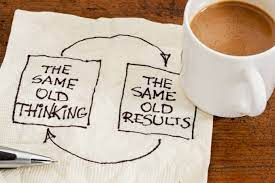
Arquivo para September 2nd, 2021
Complex thinking and humanism
Edgar Morin, Heidegger, Sloterdijk, and more prematurely  Nietszche and Schopenhauer realized the crisis of what we call humanism and which distanced itself from man.
Nietszche and Schopenhauer realized the crisis of what we call humanism and which distanced itself from man.
Some approached more from an ontological perspective such as Heidegger and Sloterdijk as a critic of Heidegger’s humanism, others as an approach and critique of Nihilism such as Nietszche, and Schopenhauer in a more human purpose, his phrases are famous: solitude is the luck of all exceptional spirits and the higher the spirit, the more it suffers.
All these thoughts deserve to be analyzed in the crisis of civilization that we have already entered, it is no longer lurking, it has already penetrated, in our view, it is in the thought of Edgar Morin that it is possible to find a more solid solution to this crisis, although we are moving in the opposite direction.
According to Morin, the core of humanism that we need to revitalize is the one described in Method II: “It is not a question of refusing humanism. It is necessary, as we shall see, to hominize humanism, and therefore to enrich it, basing it on the reality of the Homo complex” (Met. ll, p, 398).
Complex, because the human cannot be described in a linear logic, and cannot be isolated in areas delimited by knowledge (complexus: weaving together), the whole is man, and this is his complexity.
This arises from antiquity with the emergence of the problematic that will be called subjectivity, Karl Popper draws attention to the pre-Socratic Enlightenment, the naturalistic view of philosophy of this time would have submerged man in the web of laws of the material world, not precisely configuring the notion of Being, placed in subjectivist (of the subject) or objectivist (of the physis) aspects.
Morin promotes a review of concepts and methods, both in The Lost Paradigm, and especially in The Method, the recent evolutions of biological sciences, cybernetics and the so-called cultures of man, undergo revisions, highlighting the concepts of “autonomy” , of “love”, of “individual” and consequently of subjective, and of “uberty”.
Woven in the Jewish-Greek-Christian matrix of our culture, traversing the history of Western thought and daily life, humanism assumes orientations that do not exactly coincide with man, and which, in our view, gave an idealist vision to more universal human principles.
For Morin, two revisions are needed in humanism that intertwine and complete:
— The sketch of the homo complex;
—-The hominization of humanism.
To a phrase by an anonymous author (not Einstein’s) that circulates on the internet: “you cannot reach different results from the same thoughts”.

